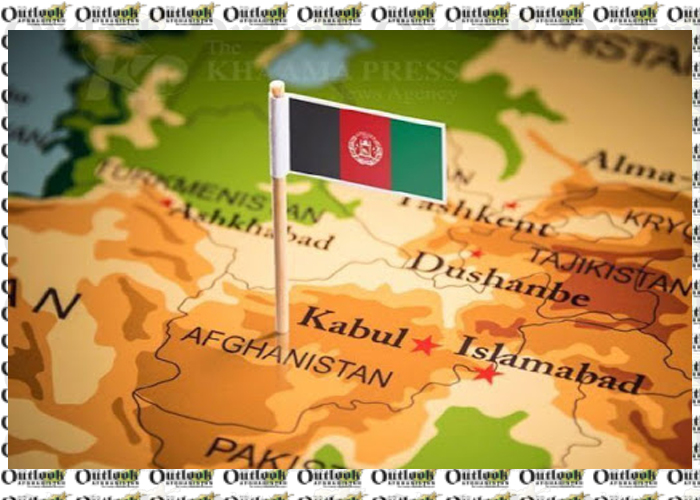Unfortunately, a large part of violence is directly or indirectly fueled by regional intelligence networks in Afghanistan. They are very successful in fooling and using a number of Afghans to perpetuate war, violence, killings and destruction in Afghanistan. The regional countries are concerned about the establishment of sovereign, independent, and self-sufficient national governments in Kabul and so seeking their own interests in instability and anarchism in Afghanistan, and so think political instability as an opportunity for themselves. However, some of Afghanistan’s problems are related to its strategic position and historical perspective; from the big game to the adoption of neutral policy in the two world wars, the Cold War, the Jihad era, the Black Taliban regime, and finally the launch of Operation Enduring Freedom program in 2001. The bitter reality today is that neighboring countries and regional powers have played a significant role in perpetuating the war and disrupting the peace process in last forty years. The Taliban is the most visible manifestation of such interference in internal affairs of Afghanistan threatening the entire world and challenging the mission of the Global Coalition against Terrorism; Now, the Afghan peace process is challenged in one way or another but their supporters and other terrorist groups have not punished yet to stop seeking their interests through illegitimate means in the Afghanistan.Undoubtedly, national weakness had also role in encouraging foreigners to interfere in internal affairs of the country.
It means, the failure of Afghan politicians to establish a powerful, legitimate and fully supported national government that can be a full-fledged mirror of the presence of all in the political structure of this country, has been problematic and has created so serious challenges that the leaders have not been able to break in most cases. Therefore, external factors have entered the conflict in the country with more power and have overshadowed the continuation of the war while part of which was related to the importance of Afghanistan’s geopolitical and geostrategic position. During the political changes of the world, the world powers have always taken a look at this point of the earth in order to use it as a rising point to achieve its own interests. During the great game between Tsarist Russia and Britain, Afghanistan was considered as a key to India’s conquest and a gateway to the shores of warm waters, while during the Cold War it served as a stronghold against spread of communism on the one hand and a place to prevent the spread of liberalism on the other. This way, the geopolitical Importance of Afghanistan has never diminished and even today Afghanistan is seen as the key to entering Central Asia, which is full of energy resources. However, there are differences in line with global developments that the allowed the neighbors joined the ranks of interventionists in Afghanistan while the destructive role of neighbors is greater than that of world powers.
The next issue which should not be forgotten is that the foundation of the governments have always laid on the basis of hegemony, monopoly, exclusion, injustice, ethnicity, oppression and xenophobia. The Taliban is the symbol and representative of this way of thinking in the modern world and still has some supporters inside the country. Based on this monopolistic view they entered in the politics of Afghanistan with destroying and shedding blood while fattened by the intellectual origins of Islamic fundamentalists. With dogmatic and monopolistic views towards power, they have not only blocked the way of progress and development of Afghanistan but also challenged the peace process. Now, the national and international community unanimously insists on securing peace in Afghanistan, but terrorist groups backed by countries in the region stand against universal values and veto everyone’s wishes; the resistance of these groups to the peace process has added to the complexities of war and peace in Afghanistan while every day a new dimension is added to it.
As a third mistake, In the aftermath of the Bonn agreement, the lack of strategic thinking and the lack of responsible approach of the heads of the Afghan government led by Hamid Karzai with Western allies created problems that the Afghan war and peace process remained a persistent problem in the country; While the pressure of international community was increasing on supporters of Taliban and it was expected that there would be a change in Pakistan’s approach to supporting terrorism but Mr Karzai under pressure of Islamabad-backed advisers put forward a plan to withdraw anti-terror coalition forces from Afghanistan which was the starting point for the defeat of the war on terrorism. In fact, the views of these advisers about presence of Taliban at the negotiating table after withdrawal of foreign forces was a smart ploy as the Pakistan sought to weaken the front in favor of the Taliban in a highly tactical game.
Eventually, the withdrawal of the Counter-Terrorism Coalition from Afghanistan in 2014 not only not led to the start of Kabul-Taliban talks; rather, the Taliban changed the equation of war because Afghan soldiers were under-trained and not became expert enough at that time. As pointed out, the lack of strategic policy in Kabul at that time led to a major defeat in the field of diplomacy-military while the cost of such mistakes are paid by the people of Afghanistan. After some positive changes in relation between Afghanistan and international community in 2014 and 2015 the condition did not last long with Trump’s strategy in 2017. Now that both Karzai and Trump have left the political scene, it is considered a turning point to learn from the pasts and end war with maximum pressure on Taliban and its supporters while need to tying relations with international allies as a weak and vulnerable country.
Home » Opinion » The Role of Regional Powers on Peace and War in Afghanistan
The Role of Regional Powers on Peace and War in Afghanistan
| Mohammad Zahir Akbari

